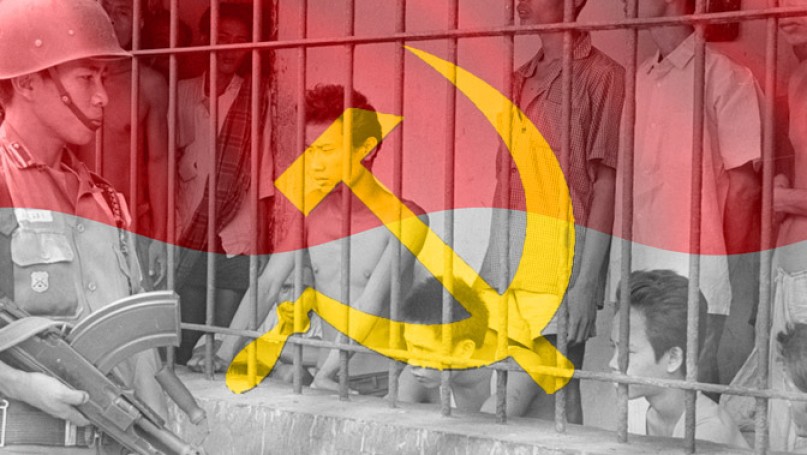
Why is Joshua Oppenheimer’s The Act of Killing (TAOK) such an unsettling film? Shooting Dogs and Hotel Rwanda reduce the Rwandan genocide to a series of personal tragedies played out in circumstances of unfathomable morality. Told from the point of view of the victims and those aiding them, these films invite a kind of shocked regard on the part of the viewer and channel one’s empathy to the victims of mass slaughter and other genocidal acts. Oppenheimer challenges these conventions in dealing with the little known Indonesian mass murders of the mid-1960s when in just a few months around 500,000 real, alleged and imagined communists were killed by the army and militia groups. Like Rwanda, these murders were largely carried out by knife, machete and other equally crude means of despatching human life. But rather than tell of this genocide from the perspective of victims, Oppenheimer focuses his film on a now elderly Anwar Congo who confesses to committing over 1000 murders. Oppenheimer gives Congo the means to recreate his atrocities in a variety of different Hollywood genres. One sits transfixed as Congo cheerfully demonstrates an assortment of methods of killing often preferred because they kept clothes and shoes from being soaked in blood.
So, finally, Oppenheimer provides the missing account of mass killing as quotidian hard work. Of course it is impossible not to be troubled by the ease with which some of our fellow beings are able to kill and the framing of such killings as a matter of simple necessity, of winners and losers. However, irrespective of Oppenheimer’s self-confessed love of Indonesia, the film is framed in some familiar Orientalist tropes concerning supposed Indonesian barbarity. There is no effort to substantiate Congo’s extraordinary claims. No context is provided for the killings. There is no analysis of the deep social fissures and strongly competing visions of post-colonial modernity that fomented for decades before the killings. Oppenheimer’s ability to turn up a range of political actors as grotesque as they are alarming only serves to cement an idea that Indonesia is enigmatic, inscrutable, a place where the perpetrators of great crimes remain permanently beyond the reach of justice and are even feted for their supposed nation-saving efforts.
Despite the film arguing the impunity enjoyed by Anwar Congo and others demonstrates not just the failings of the Indonesian state but its criminal heritage it also very directly seeks to provide an experience of shock, dismay and revulsion. And, as the film unfurls in its highly distinctive way, one also begins to wrestle with one’s feelings about Congo himself. Congo still seems to revel in his notoriety yet, as his own death approaches, perhaps begins to grasp the enormity of his crimes. While one may not necessarily have a feeling of empathy for Congo, Oppenheimer attempts to close the distance between (innocent) viewer and (guilty) perpetrator. He also succeeds in bringing an awareness of the mass murders to a wider international audience and arguably the insistence on the audience bearing witness is important. But within Indonesia the massacres are not forgotten, despite some debate about how much is known by younger Indonesians, and it is the film’s implied claim that it is making space for Indonesians of all persuasions to confront this grisly past that tends to hubris. Teju Cole refers to this kind of film-making as evidence of a white saviour industrial complex in which the camera not only shines a light into the dark places of the west’s others but also salves liberal consciences. Cole goes on to say that the complex is not concerned with justice but about westerners having an intensely emotional experience. TAOK falls into this category: it is in parts hand over the mouth disturbing but Oppenheimer seems unable to resist the temptation to present the primary characters as bizarre, abstruse and this is gratuitous, undermining the film’s wider message. The viewer may feel outrage at the events of the mid-1960s but something is lost in the outrageous mis en scene.
The film though does succeed where those about the Rwandan genocide and even Roberto Benigni’s darkly comic Life is Beautiful fails and that is in making mass murderers ordinary and knowable. Watching Congo with his grandchildren or Congo’s co-worker in murder, Adi, with his family in a shopping mall returns them from the realms of monstrosity and potentially puts them in the adjacent seat on a bus or in the queue in front of you at the checkout. As Michel Foucault suggested, massacres may have become vital but they are also the dull, grey work of undistinguished people. And while TAOK reminds us of that, because the film’s primary characters are turned into outlandish parodies, it reinstates a critical distance between the killers depicted in this film and viewers. TAOK succeeds and fails in equal measures but it is a unique and unusually disturbing film.
Further Reading on E-International Relations
- Reflecting on the 75th Anniversary of Indonesian-Turkish Relations
- Western Dominance in Indonesia’s Discipline of International Relations
- Gender Representation in IR Journals: Experience from Indonesia
- Indonesia’s Role in International Relations: A Perspective from the Global South
- The Mandala, Agency and Norms in Indonesia-India Global Affairs
- Migration Management and Safe Migration along the Indonesia-Malaysia Corridor